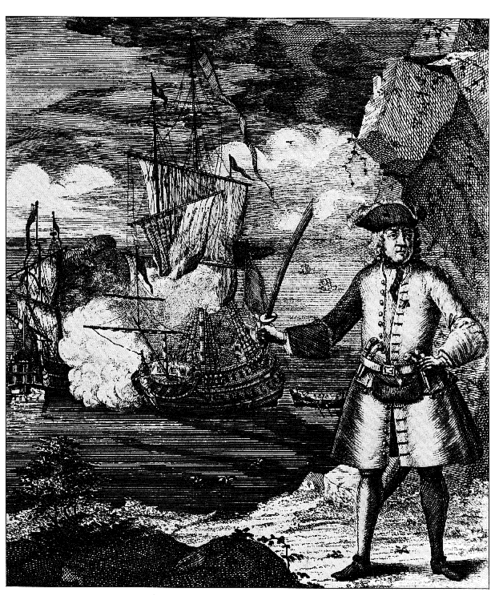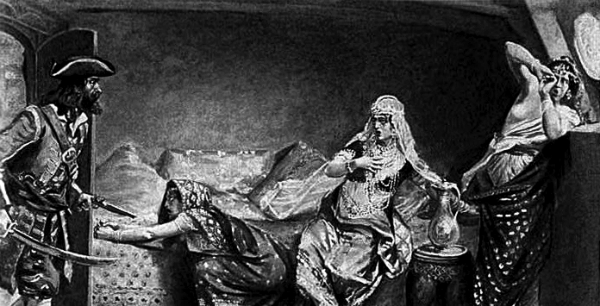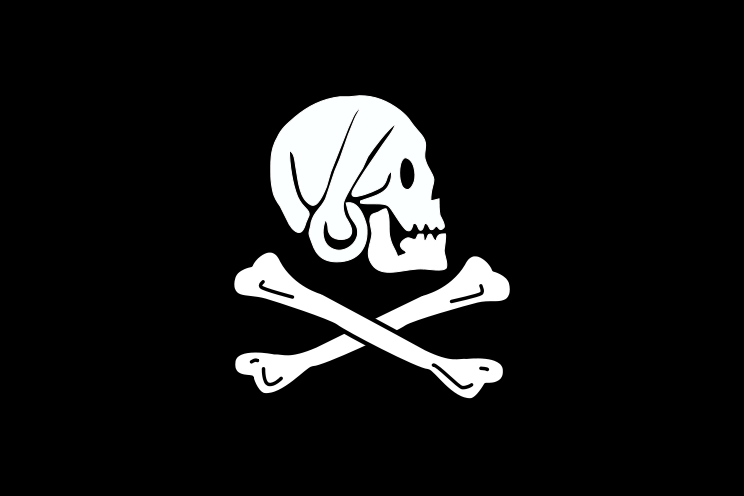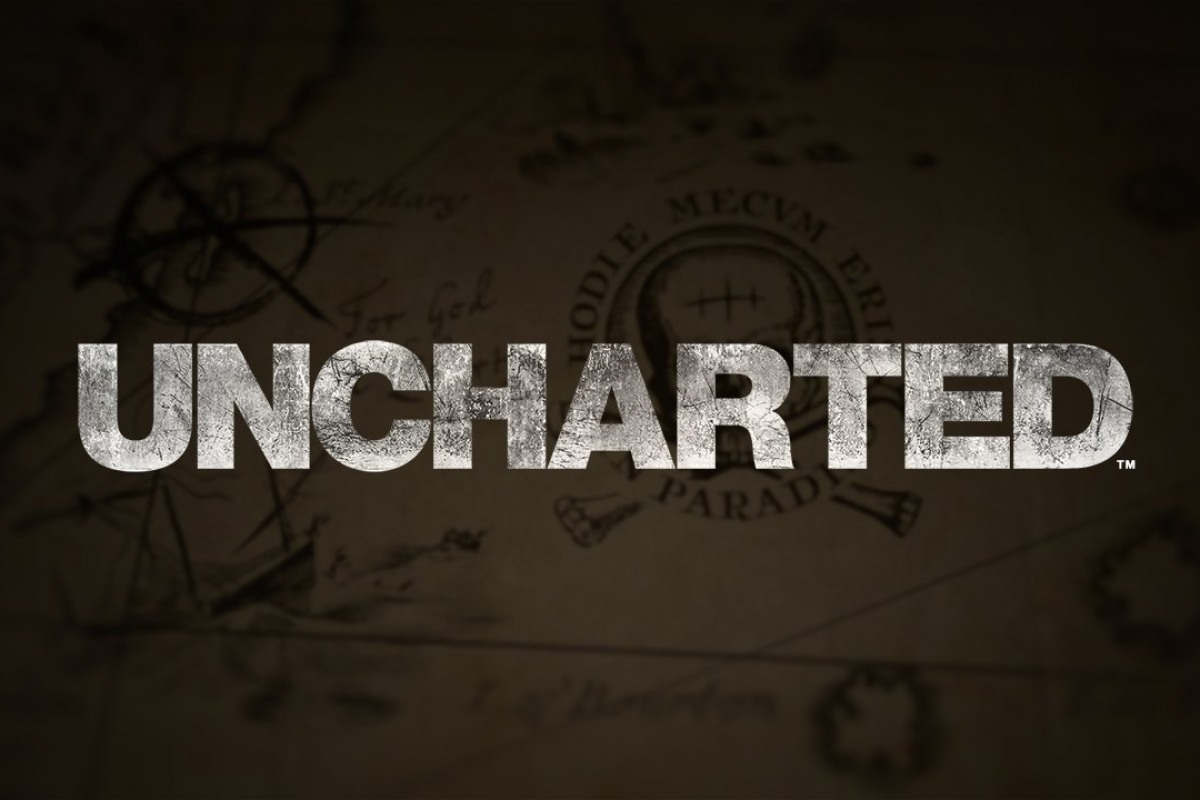UPDATE – it is now confirmed that Henry Every (using the ‘Avery’ spelling) IS the central historical figure in Uncharted 4.
Pirates. Agghh.
Early indications suggest that the upcoming UNCHARTED might use the pirate Henry Every as one of its central historical figures; a man whose romanticised life holds just the mystery, adventure, daring and fortune that gets Nathan Drake out of bed. But who was he? What did he do? And specifically, why might Uncharted be going there?
Henry Every, (variously known as Henry Avery, John Avery, Benjamin Bridgeman or Long Ben) was a seaman born on August 23rd 1659 (about 119 years after Sir Francis Drake) in the west country of England. Little is known of his early life beyond the fact that he joined the navy. Every was discharged from following a massive defeat suffered at the hands of the French at the Battle of Beachy Head in July 1690. But it is what happened after this that saw him catapulted into the history books; and ultimately kicked off what has come to be known as The Golden Age of Piracy. The sources are both unreliable and contradictory; even those attributed to Daniel Defoe, of Robinson Crusoe fame contradict each other.
In The King of Pirates; being an account of the famous enterprises of Captain Avery* (described as “fiction with scarcely a substratum of fact”) Every himself purportedly tells us by means of a letter that he was determined from the outset to enter into a life of piracy. The text isn’t exactly forthcoming with dates, names of ships or even of places so it is hard to say when his success began, but he claims to have been raiding the coasts of the Americas for some time before his most famous act of piracy took place. During this period he claims that he buried some of his loot (some of which he expressly mentions retrieving). But according to modern thought; Captain Kidd is believed to be the only pirate ever to actually bury treasure. This inconsistency is troubling; and suggests that the text really is all but useless. It is, however, a jolly good read.

Much of his early pirating (which at this time manifested itself mostly as illegal slave trading) was done under the captaincy of Red Hand, who by all accounts was one of the genuinely nasty folks; the sort who would murder simply to ensure “that they might tell no tales”. When Captain Red Hand finally met his death (by way of a canon ball to his chest which tore his arm and head clean off) no one really cared that much.
Cruelty never recommends any man among Englishmen.
Every was promoted to the now vacant position of captain. Under Every, the crew did incredibly well, (although this is according to a source which claims to have been written by Every himself). They stole plenty of treasure, and gained an appetite for penguins and seals. Their biggest problem seemed to be how they should go about disappearing into the world with all their money. It seems a boat load of jewels was tough to pass off as honest wages.
Privateering (basically legalised pirating) is a lucrative business during times of war; ‘sailors’ could essentially work as mercenaries. They would get their letter of marque** and head off. In times of peace these same guys found themselves out of legitimate work.
However, you can’t keep a good pirate down. Every became part of a crew of Englishmen during the time of an alliance with the Spanish against the French. The fleet was due to set sail in 1693 from Spain to disrupt the French vessels which were harassing the Spanish and their interests in the Caribbean. However they were kept waiting in what have been described as appalling conditions and without pay. Some sources suggest that Every was persuaded to mutiny, but Captain Charles Johnson (popularly believed to be Daniel Defoe writing under a pseudonym) implied in his General History of the Pyrates (1725), that he was very eager to do so, and Every’s own writing definitely backs that up. The crew planned their escape and made a clean getaway with the captain blind drunk on rum in his cabin. He started to sober up only to be told that his cabin was now Every’s cabin, and he was not welcome anymore. The mutineers cast him ashore, along with any of the rest of the crew that did not wish to be a part of the pirate’s endeavour.
Every turned the boat towards the Indian ocean, renamed it (from The Charles II to The Fancy), and made alterations to make it significantly faster. Somewhere near to the island of Madagascar Every and his crew took on a couple of French vessels and won. Several of the defeated crew threw their lot in with Every. Heading north further into the Indian Ocean they took on a fleet of vessels that belonged to the Grand Mogul returning from their annual pilgrimage to Mecca. What transpired was the single most profitable pirate raid in recorded history. Every (if they were Every’s words) vehemently denies raping (or ‘ravishing’ as was the word of the time) the Granddaughter of the Great Mogul who happened to be on board. Some accounts claim he did, according to Every these tales were told to smear his shining reputation. He doesn’t deny that his crew ‘ravished’ her female companions (of whom there were plenty, it seems). But that was OK because they weren’t as noble, and were apparently willing.***

Unsurprisingly, the Mogul Emperor (Abul Muzaffar Muhi-ud-Din Mohammad Aurangzeb) was incredibly pissed off and was only talked down by the East India Company from a retaliatory attack on British governed Bombay when they promised him financial reparations for Every’s deeds. Every had promised not to attack British ships (although he actually did), but still managed to put a massive strain on his relationship with his home country.
This is where the details become very sketchy. Some accounts claim that not willing to split the wealth more ways than he deemed necessary, Every persuaded his new allies (the crew he’d picked up near Madagascar) to put ALL the loot in the hold of The Fancy, claiming that the ship was highly unlikely to be taken or destroyed. Guess what? He ran off with it, and having previously made all those alterations, his jilted crew had no chance of catching up with him. Every and the remnants of his crew took off to the Caribbean and thence northwards, intending on surreptitiously splitting the cash and disappearing into the new world never to be seen again. However, selling that quantity of gold and jewels (including many diamonds) isn’t as easy as you might think and consequently the law hunted them down.

Henry Every’s Flag
Other tellings of the tale suggest that for the years following the raid Every he spent time on Madagascar trying to work out how to give his crew and the law the slip. Sounds like being a successful pirate was riveting. He allegedly built a small town, to which other pirates came and settled down. From there Every launched shorter range missions. Gradually though, his initial crew members began to drift away, taking their share of the loot. However more loot was being added all the time. Every learned from some passing Englishmen (who did not know his true identity) that he was now notorious. The number of people living with him on Madagascar was grossly overestimated, but Every (in disguise) did not correct them. It was in his best interest to have people believe he was much stronger than he in fact was.
It is said that he made his way back towards England with his loot and one companion (who had guessed his desire to leave the rest of them behind) by road disguised as traveling merchants. His account comes to an end while he is in Constantinople (Istanbul) although he expressed an intention to make it at least as far as France. Some say he returned to England and was swindled out of his fortune, dying penniless and largely alone, and others claim he returned to Madagascar and lived as a king would, even minting his own currency. Captain Charles Johnson claims he was diddled in Bristol, but the trouble with this source is no one knows who Johnson is.
The idea of a man living out his days as a self-styled king is incredibly appealing; Madagascar is an island of jungle and of plains. The jungles were excellent places to hide out and build fortresses. The foliage was so dense that one well designed path leading to the fortifications could baffle any potential intruder and have them never find what they were looking for. The island had long been a stopping point for pirates, even before Every’s time, as its fresh water was plentiful, as were its other supplies required for survival. I wonder how much else could be found there now?
*Full title; The king of pirates: : being an account of the famous enterprises of Captain Avery, the mock king of Madagascar with his rambles and piracies wherein all the sham accounts formerly publish’d of him, are detected. In two letters from himself; one during his stay at Madagascar, and one since his escape from thence (1720)
**A letter of marque was a document given to a ship giving it permission to attack foreign ships. It is what makes a pirate distinct from a privateer. As it happens it doesn’t seem like Drake had one from Queen Elizabeth I but she had given explicit consent.
***Of course it wasn’t OK.

